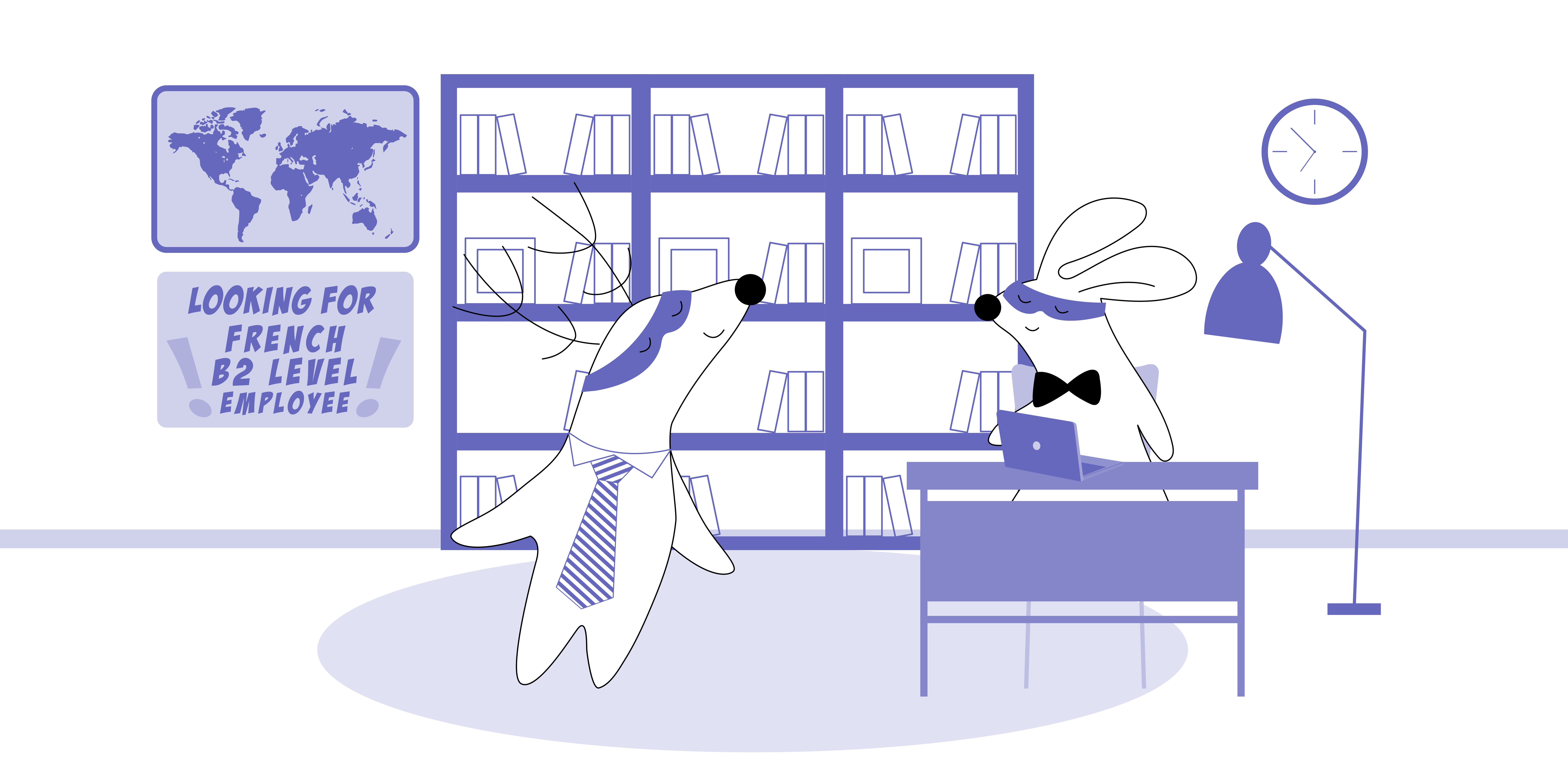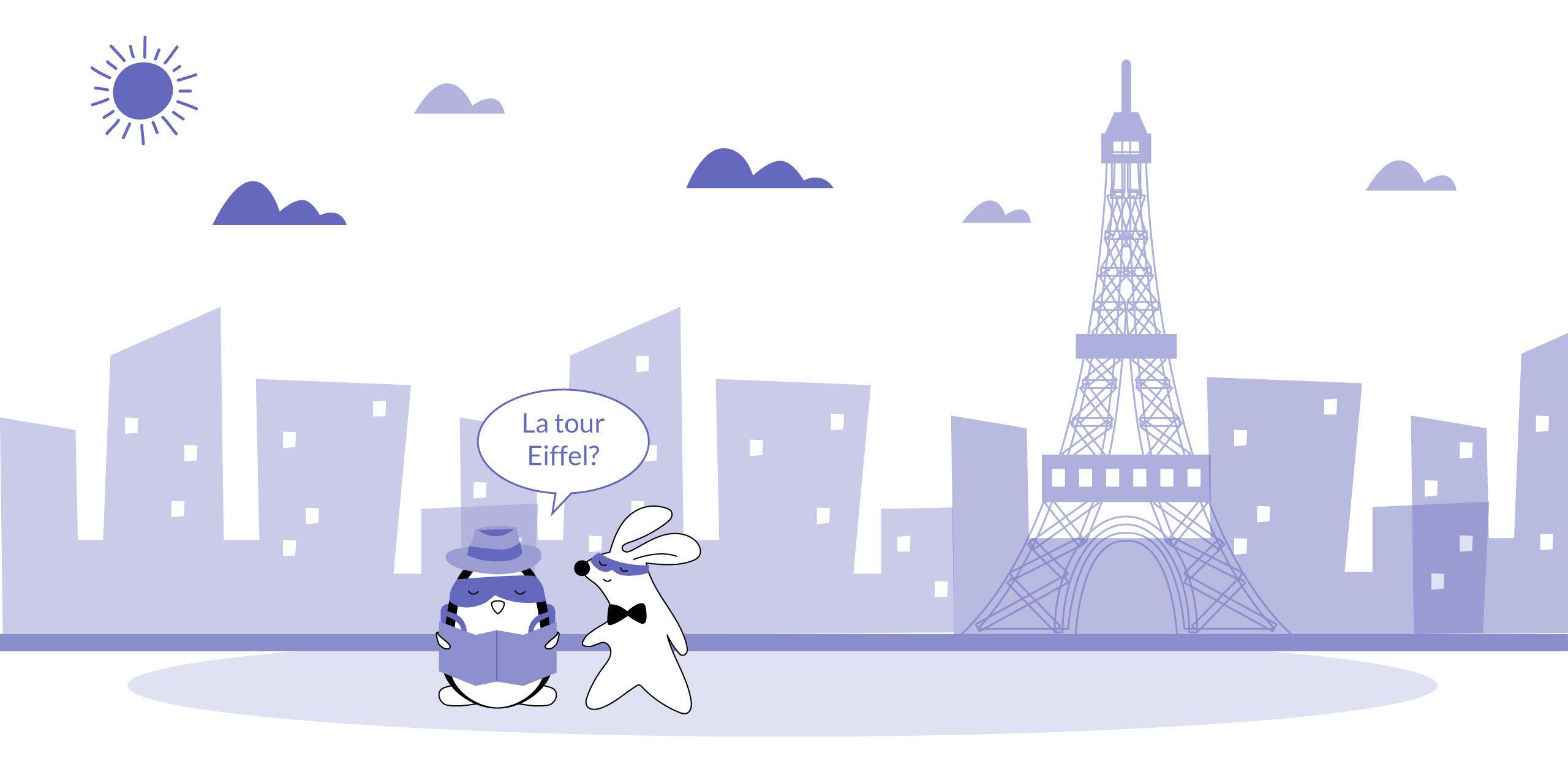
When traveling in a foreign country, it's important to be able to ask for and give directions in the local language. In French, this can be a little tricky if you don’t know the necessary vocabulary and grammar structures. However, with a little practice, you should be able to do it – and feel like a native speaker while doing so.
In this article, we'll teach you the necessary vocabulary in French for asking for and giving directions. We'll also offer some tips on how to use this vocabulary correctly, as well as show you how grammar works in these phrases. So whether you're planning a trip to France or just want to be able to converse with your French friends, here’s all the info you need!
Learn French with Langster
8 Common Ways to Ask For Directions in French
First of all, let’s learn how to ask for directions in French. Simple phrases below focus on referencing a specific place or address, and they should help you ask the question and get the most direct answer. With these, you’ll be able to reduce your chances of getting lost in a French-speaking city – and even if you do, just continue asking for directions until you get to the necessary place.
However, before you start mastering French directions, remember that in France, it’s extremely important to be polite. So before asking how you can get to the train station, start with “excusez-moi”. This simple phrase means “excuse me”. It is the best and most polite way to grab attention and increase the chances of finding people who are willing to help you.
So first, try saying it:
French
English
Excusez-moi
Excuse me
After you have all the attention you need, proceed with the following:
Est-ce que vous savez où est… ? Savez-vous où est… ?
These two questions are used to ask someone for directions to a specific place. They mean "Do you know where… is?" and "Do you know how to get to… ?" respectively. You can use them in any situation where you need help finding a specific location or address. For example, if you are lost in a city, you can ask a local for help by using a question like this.
French
English
Est-ce que vous savez où se trouve la place de la Concorde ?
Do you know how where is the Place de la Concorde?
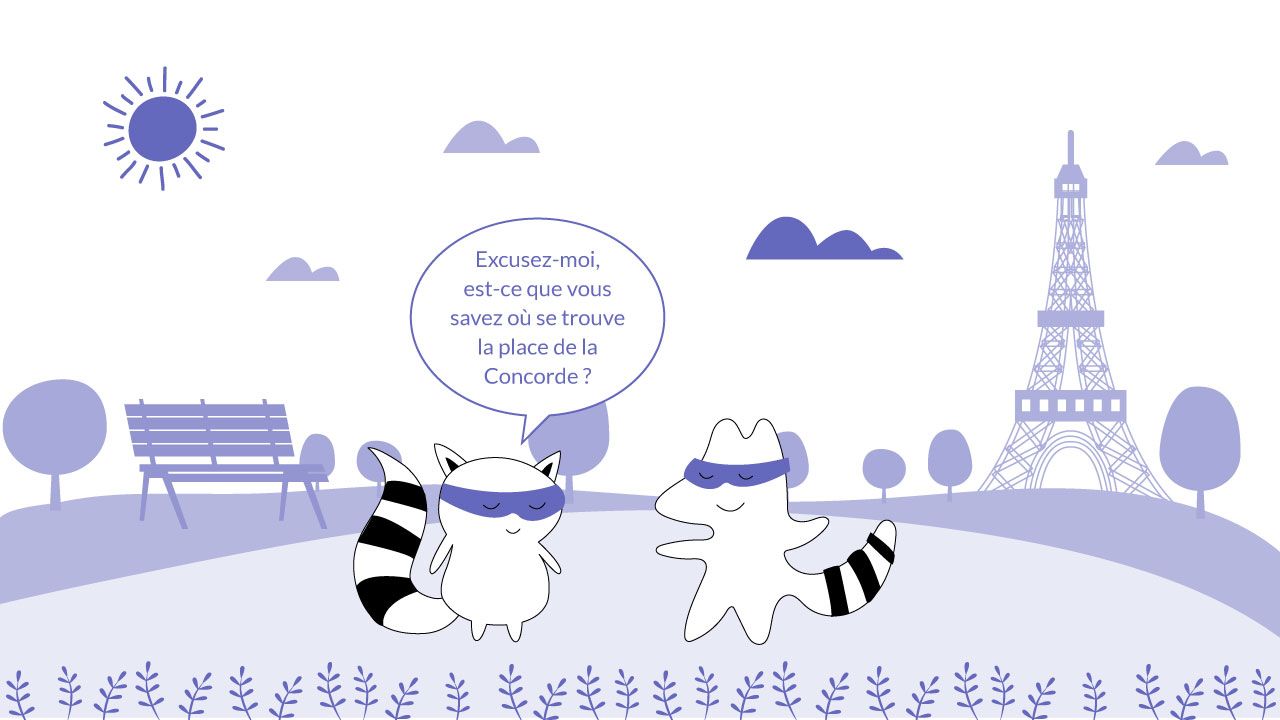
Où est…/Où sont.. ?
These questions are easier to use if you want to ask where something is located in the building. It can be translated as "Where is/are…?" You can ask it whenever you need information about where something is. For example, if you want to know where the ATM is, you can ask a passer-by this question.
French
English
Pardon madame, où est la bibliothèque?
Excuse me, ma'am, where is the library?
Où sont les toilettes ?
Where are the toilets?
To make the phrase a bit more formal, you can also use the alternative: où se trouve…?
Où est-ce que je peux trouver… ?
This question can be translated as "Where can I find… ?" or "Where is the best place to find… ?" It's a great question to ask if you need help finding something specific. For example, if you want to buy a souvenir but don't know where to look, or if you’re looking for a good place to eat.
French
English
Où est-ce que je peux trouver un bon café dans le quartier ?
Where can I find good coffee in this district?
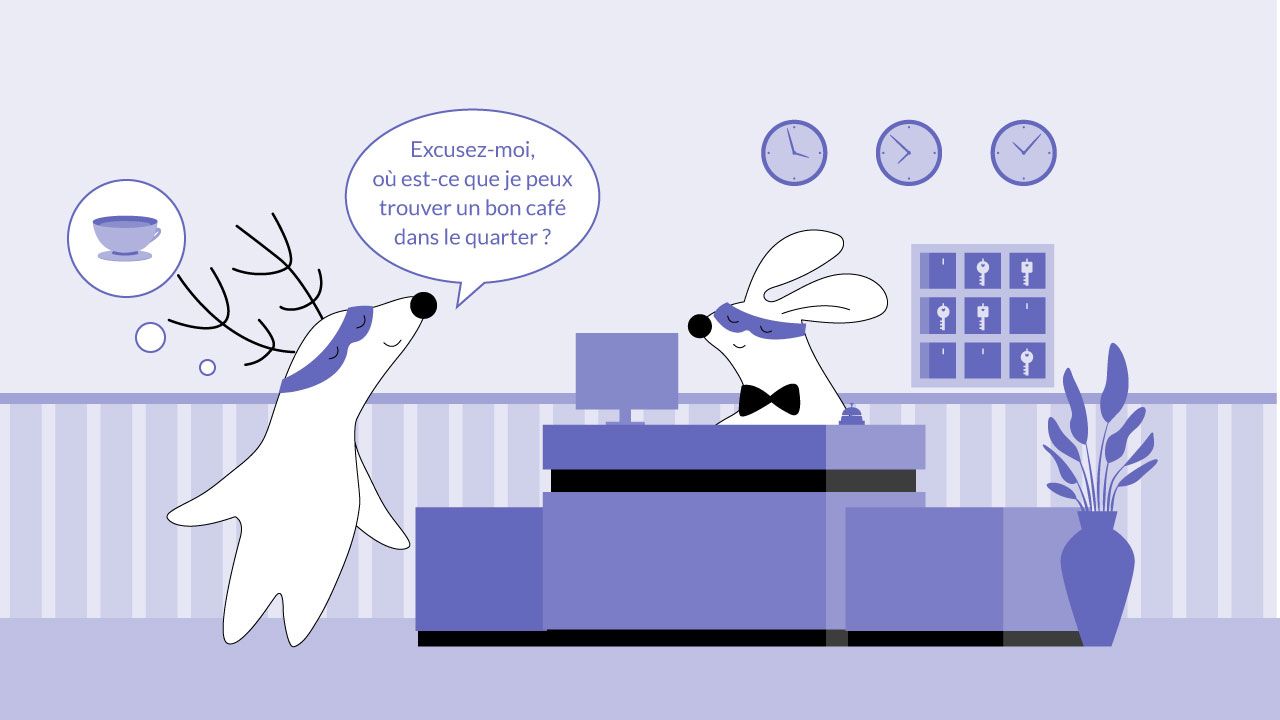
Est-ce qu’il y a…près d’ici…/ Y a-t-il … près d’ici ?
Use these questions to ask if there is something near you. They mean "Is there…near here?" or "Are there any…near here?". Note that while the question starting with “est-ce qu’il y a…” is more formal, the shorter version is more casual.
You can use them when you're looking for specific places or services, such as a grocery store, a post office, or a bank.
French
English
Est-ce qu’il y a un bureau de poste près d’ici ?
Is there a post office near here?
Comment peut-on aller à… ?
This question asks someone how you can get to a certain place. In English, you’d say "How can I get to… ?" With this phrase you can ask for specific directions to get both to common places, such as the Eiffel Tower, as well as specific addresses.
For example, if you want to know how to get from the airport to your hotel, you can ask this question.
French
English
Excusezmoi, comment peuton aller au 108 rue Saint-Lazare ?
Excuse me, how can I get to 108 rue Saint-Lazare?
Please note that here, on can be used both as the pronoun “we” as well as an impersonal pronoun. If you want to make it a little more personal, you can change the phrase to: “Comment est-ce que je peux aller à…” – it would mean the same.
…le plus proche/la plus proche ?
Another way to ask about the nearest service, business, or any other important place, is by adding "le plus proche/la plus proche" instead of "près d’ici." For example:
French
English
Excusezmoi, savezvous où est l'arrêt de bus le plus proche ?
Excuse me, do you know where is the nearest bus stop?
You can use these endings with any beginning of the phrase, such as “où est,” “comment peut-on aller à..,” “est-ce qu’il y a,” etc. Please note that the article “le/la” will change according to the gender of the place you refer to.
French
English
Où se trouve la bibliothèque la plus proche ?
Where is the nearest library?
Où se trouve le restaurant le plus proche ?
Where is the nearest restaurant?
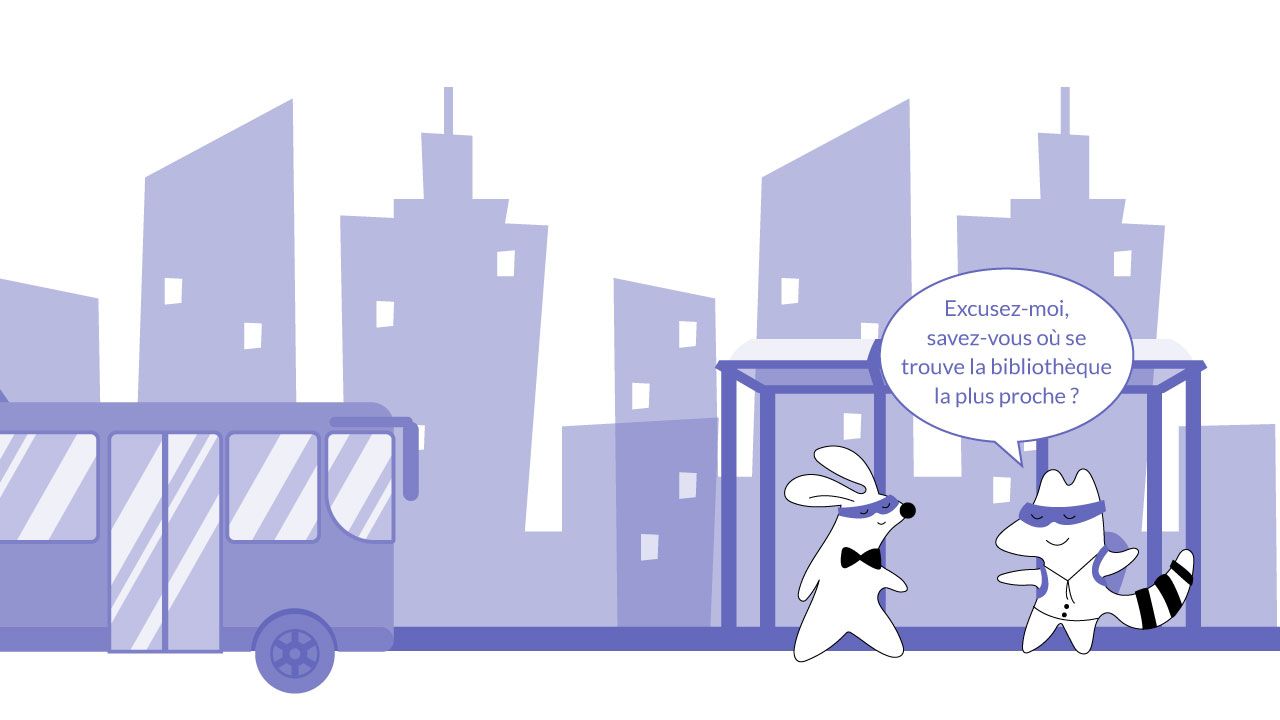
Est-ce que c’est près d’ici… ?
This question can be translated as "Is it near here… ?" and is used to specify if a certain place is located close to your current position. It's a great question to use when you need directions but don't know whether you should take a bus or car to get there or can walk. For example, if you see a sign for a museum but don't know how far away it is, you can ask this question.
French
English
Est-ce que le Louvre est près d’ici ?
Is the Louvre near here?
Est-ce que je peux y aller à pied ?
Another way to ask about distance is by using the phrase "Est-ce que je peux y aller à pied ?" It can be translated as "Can I walk there" and you use to ask if you can get to a certain place by foot from your current location. For example:
French
English
Estce que je peux y aller à pied ou estce que je dois prendre le bus ?
Can I walk there or do I have to take the bus?
Say Where Something Is – Learn the Major French Directions Words
Of course, asking for directions is not the only helpful vocabulary you’ll want to learn. You’ll also want to know what the major French directions mean. These words won't only help you understand the answer when asking how to get somewhere, but also explain the route by yourself. Here are the key words related to location and directions you need to know.
How to get somewhere:
French
English
Tout droit
Straight ahead
À droite
To the right
À gauche
To the left
Nord
North
Sud
South
Ouest
West
Est
East
A côté de
Next to
En face de
In front of
Derrière
Behind
Devant
In front of
If there are a series of steps you need to take, here are the words to show the order:
French
English
Tout d’abord
First
Puis
Next
Ensuite
Then
Enfin
Finally
Where something is located:
French
English
Centre ville
City center
Au coin de
At the corner of
Au bout de
At the end of
La prochaine rue | La rue suivante
Next street
Première à droite
First to the right
Deuxième à gauche
The second to the left
C'est loin d'ici
That’s far from here
C'est près d'ici
That's near here
French verbs related to directions:
French
English
Traverser
to cross
Prendre à | tournez à
to turn to
Continuer
to go straight
Suivre
to follow
What to Remember When Asking or Giving Directions in French
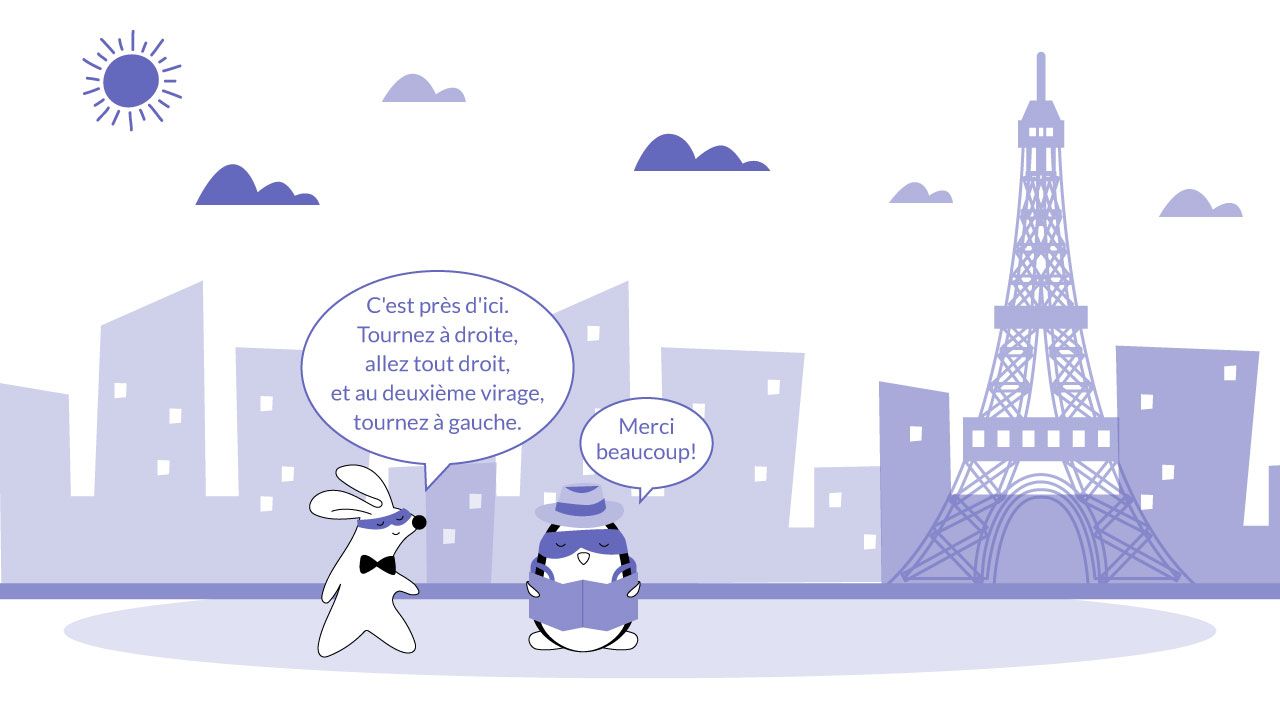
When asking for or giving directions, remember to use clear and concise language. This will make it easier for the person you're speaking to understand you. If you didn’t get something the other person said, don’t be ashamed to ask again – after all, French is not your first language, and even native speakers can not understand something the first time.
It's also important not to be afraid of making mistakes – they are a natural part of learning. Many French learners are ashamed to speak and use new French vocabulary they just learned, but this is the key – the more you practice, the better you get. If you stay silent all the time, what will you learn?
So get out there, and when you have a chance, ask for directions in French. With a little practice, you'll be able to feel like a native speaker when doing that – and who knows, maybe you’ll need this skill in the very near future.









